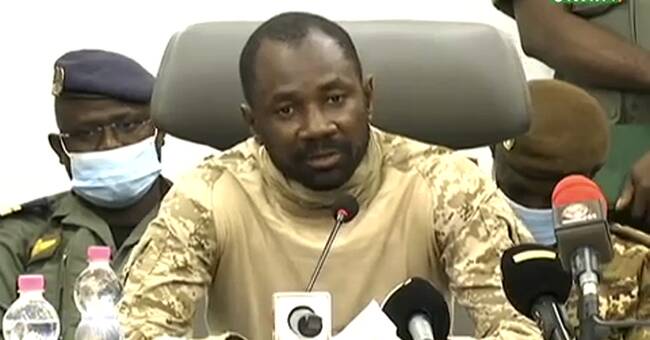The officers who took power in Mali on Tuesday had promised a civilian transitional government, to pave the way for new elections when the situation allows. But now the junta's spokesman Ismaël Wague is no longer as clear that the military should stay away from the transitional government.
- We will appoint a transitional council, with a transitional president who will be either military or civilian. We have contact with civil society, opposition parties, the majority, everyone, to try to get the transition in place, he says to the TV channel France 24 according to the news agency AFP.
The statement came after the M5-RFP coalition pointed out that the junta had promised to "initiate a civilian political transition", and that the opposition would be happy to be involved in the work of "developing a roadmap" for democracy. Spokesman Choguel Maiga told the media that a huge demonstration would be held in the capital Bamako on Friday to "celebrate the victory of the Malian people".
On Thursday, most things seemed as usual on the streets of Bamako, in line with Ismaël Wague's call for residents to continue with their daily lives, reports the news agency Reuters.
Other signs of calm are that the influential protest leader and imam Mahmoud Dicko says he is withdrawing, and that France emphasizes that efforts against terrorism continue as usual.
Officer Assimi Goita has introduced himself as the leader of the coup. He has led Mali's special forces for five years, and now describes himself as chairman of the CNSP (roughly the "National Committee for the Liberation of the People"), the group that leads the country after the coup.
The outside world has condemned the coup. But after the reassuring signals from Bamako, the international efforts in Mali seem to continue as usual - the force Minusma in the country, in which Sweden also participates, is one of the UN's largest.

